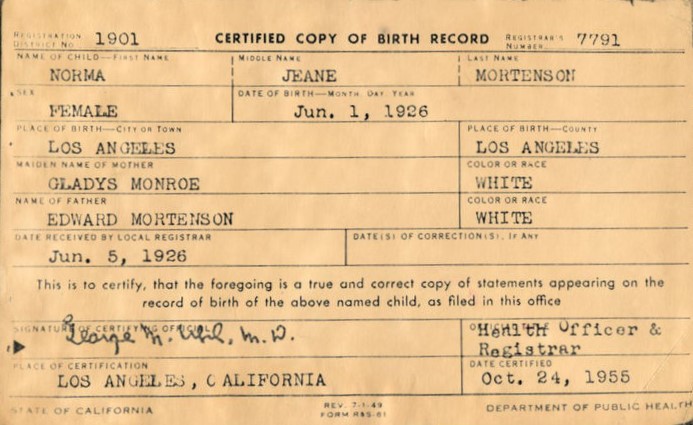
Pop quiz time! What do the following historical documents have in common?
- Your family’s pre-Civil War vital records from Mobile, Alabama
- Your Irish ancestor’s official 1850 birth record from County Galway
- The will of your 3x great grandmother from Connecticut, who died in 1799
Give up? The answer is they don't exist. Here’s why:
- The about half of Alabama county courthouses have burned to the ground at least once, and depending on the years they burned, many precious vital records and court proceedings may not be available. Sadly, Mobile County’s courthouse burned an astounding three times in the 19th century (1823, 1840, and 1870), making it very unlikely that many early county records still survive. (1)

- Civil registration of births in County Galway, as for all counties in Ireland, did not begin until 1864. Prior to 1864, baptismal records are the best bet for information on individual births. (2)
- And your 3x great grandmother’s will from 1799 in Connecticut? It was not until 1809 that the state of Connecticut officially allowed women to write wills by enacting one of first married women’s property laws ever in the United States. (3)
These examples illustrate why it’s always best to do a little homework, especially if you’re hunting for documentary evidence. Whether you’re embarking on a solo genealogical mission or requesting assistance from the researchers at Genealogists.com, preliminary research, or pre-search, is key.To help you accomplish this sometimes-daunting task, we’ve taken a page from the investigative journalist’s handbook and scrambled up the traditional “5 Ws” to create a short checklist for your pre-search: Who?Consider the age, gender, ethnic background, and socio-economic status of your research subject. This information will most certainly have an influence on any documentation, or lack thereof, relating to his/her life.While age, gender, and ethnic background are generally apparent, socio-economic status is sometimes a little harder to discern. The US Census gives some great clues. For example, check out the columns headers for information requested on the 1910 US Census:

This census is a particular favorite of genealogists because it asks mothers for the number of children born and the number currently living. High infant mortality within a given family could suggest a lack of access to doctors or health professionals in general, and lead a researcher to surmise that the family’s income was on the lower end of the spectrum. Further to the right, you’ll see overhead sections called Occupation, Education, and Home. What are the adults’ trades/professions? Can they read and write? Are they formally educated? Are the children attending school? Do they rent or own their home? Is the owned home mortgaged? Is it on a farm? Are any of the household members sensorily disabled (blind, deaf, or dumb)? All of the tiny factoids collected in the census combine to build a nice picture of a household’s living situation and finances, which may help you to determine whether the family had the motivation, opportunity, and/or means to officially document their lives through vital certificates, wills, deeds, etc.Where?You probably already know the general answer to this question in its modern context, but hold that thought, because you need one more piece of information to make your pre-search a success... When?We all know that timing is everything. In genealogical research, this couldn’t be more true. Historical context will help you to determine what governing body--if any--was in charge of gathering and maintaining official records where your family was living.For certain geographic regions, fluctuating political boundaries were the norm until as late as the mid-20th century. Case in point, check out this incredible video which illustrates European border changes over the course of 1,000 years:
Once you’re armed with the personal data of your research subject, where they lived, and when, you’ll be able to narrow down what kind of documentation may or may not be available for them. (Plus, you’ll save yourself the cost of a helper conducting that initial research.)Always remember that genealogy is not only the pursuit of our ancestors, it’s also a way to learn about how historical circumstances impact the very existence of documentary evidence. Whether a record has been destroyed, mysteriously disappeared, or was never created, it’s immensely helpful to know if the information you’re seeking is even available -- before you set out to find it.




